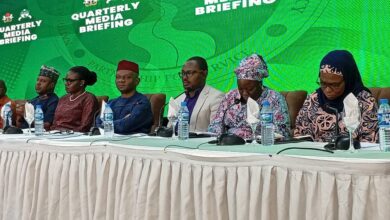Gays Top Monkeypox Cases Globally -WHO Alerts

The World Health Organisation (WHO) has disclosed that, based on currently available information, monkeypox cases have mainly but not exclusively been identified amongst men who have sex with men (MSM) seeking care in primary care and sexual health clinics.
WHO made the disclosure in a statement issued on Saturday, May 21, 2022.
In another development, the Health body noted that, since 13 May 2022, cases of monkeypox were reported to it from 12 Member States that were not endemic for monkeypox virus, across three of its regions.
According to the statement, “epidemiological investigations are ongoing, however, reported cases thus far had no established travel links to endemic areas.
“Based on currently available information, cases have mainly but not exclusively been identified amongst men who have sex with men (MSM) seeking care in primary care and sexual health clinics.
“The objective of this Disease Outbreak News is to raise awareness, inform readiness and response efforts, and provide technical guidance for immediate recommended actions”, it said.
WHO noted that the situation was evolving and it expects there will be more cases of monkeypox identified as surveillance expands in non-endemic countries.
Monkeypox is a viral zoonosis (a virus transmitted to humans from animals) with symptoms very similar to those seen in the past in smallpox patients, although it is clinically less severe.
The virus is transmitted from one person to another by close contact with lesions, body fluids, respiratory droplets and contaminated materials such as bedding. The incubation period of monkeypox is usually from 6 to 13 days but can range from 5 to 21 days.
Monkeypox endemic countries are: Benin, Cameroon, the Central African Republic, the Democratic Republic of the Congo, Gabon, Ghana (identified in animals only), Ivory Coast, Liberia, Nigeria, the Republic of the Congo, Sierra Leone, and South Sudan.





